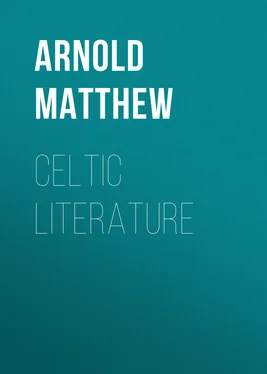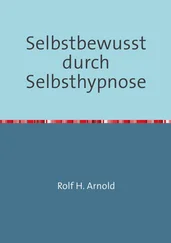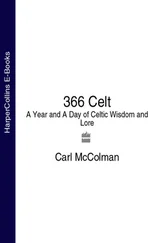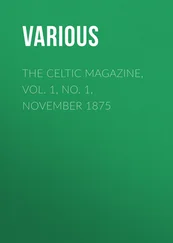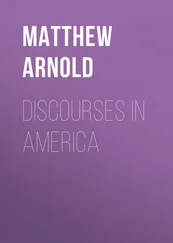Matthew Arnold - Celtic Literature
Здесь есть возможность читать онлайн «Matthew Arnold - Celtic Literature» — ознакомительный отрывок электронной книги совершенно бесплатно, а после прочтения отрывка купить полную версию. В некоторых случаях можно слушать аудио, скачать через торрент в формате fb2 и присутствует краткое содержание. Жанр: foreign_antique, Языкознание, literature_19, Культурология, на английском языке. Описание произведения, (предисловие) а так же отзывы посетителей доступны на портале библиотеки ЛибКат.
- Название:Celtic Literature
- Автор:
- Жанр:
- Год:неизвестен
- ISBN:нет данных
- Рейтинг книги:5 / 5. Голосов: 1
-
Избранное:Добавить в избранное
- Отзывы:
-
Ваша оценка:
- 100
- 1
- 2
- 3
- 4
- 5
Celtic Literature: краткое содержание, описание и аннотация
Предлагаем к чтению аннотацию, описание, краткое содержание или предисловие (зависит от того, что написал сам автор книги «Celtic Literature»). Если вы не нашли необходимую информацию о книге — напишите в комментариях, мы постараемся отыскать её.
Celtic Literature — читать онлайн ознакомительный отрывок
Ниже представлен текст книги, разбитый по страницам. Система сохранения места последней прочитанной страницы, позволяет с удобством читать онлайн бесплатно книгу «Celtic Literature», без необходимости каждый раз заново искать на чём Вы остановились. Поставьте закладку, и сможете в любой момент перейти на страницу, на которой закончили чтение.
Интервал:
Закладка:
And then, besides, to our knowledge of the Celtic genius, Mr. Norris has brought us from Cornwall, M. de la Villemarqué from Brittany, contributions, insignificant indeed in quantity, if one compares them with the mass of the Irish materials extant, but far from insignificant in value.
We want to know what all this mass of documents really tells us about the Celt. But the mode of dealing with these documents, and with the whole question of Celtic antiquity, has hitherto been most unsatisfactory. Those who have dealt with them, have gone to work, in general, either as warm Celt-lovers or as warm Celt-haters, and not as disinterested students of an important matter of science. One party seems to set out with the determination to find everything in Celtism and its remains; the other, with the determination to find nothing in them. A simple seeker for truth has a hard time between the two. An illustration or so will make clear what I mean. First let us take the Celt-lovers, who, though they engage one’s sympathies more than the Celt-haters, yet, inasmuch as assertion is more dangerous than denial, show their weaknesses in a more signal way. A very learned man, the Rev. Edward Davies, published in the early part of this century two important books on Celtic antiquity. The second of these books, The Mythology and Rites of the British Druids , contains, with much other interesting matter, the charming story of Taliesin. Bryant’s book on mythology was then in vogue, and Bryant, in the fantastical manner so common in those days, found in Greek mythology what he called an arkite idolatry, pointing to Noah’s deluge and the ark. Davies, wishing to give dignity to his Celtic mythology, determines to find the arkite idolatry there too, and the style in which he proceeds to do this affords a good specimen of the extravagance which has caused Celtic antiquity to be looked upon with so much suspicion. The story of Taliesin begins thus:—
‘In former times there was a man of noble descent in Penllyn. His name was Tegid Voel, and his paternal estate was in the middle of the Lake of Tegid, and his wife was called Ceridwen.’
Nothing could well be simpler; but what Davies finds in this simple opening of Taliesin’s story is prodigious:—
‘Let us take a brief view of the proprietor of this estate. Tegid Voel— bald serenity —presents itself at once to our fancy. The painter would find no embarrassment in sketching the portrait of this sedate venerable personage, whose crown is partly stripped of its hoary honours. But of all the gods of antiquity, none could with propriety sit for this picture excepting Saturn, the acknowledged representative of Noah, and the husband of Rhea, which was but another name for Ceres, the genius of the ark.’
And Ceres, the genius of the ark, is of course found in Ceridwen, ‘the British Ceres, the arkite goddess who initiates us into the deepest mysteries of the arkite superstition.’
Now the story of Taliesin, as it proceeds, exhibits Ceridwen as a sorceress; and a sorceress, like a goddess, belongs to the world of the supernatural; but, beyond this, the story itself does not suggest one particle of relationship between Ceridwen and Ceres. All the rest comes out of Davies’s fancy, and is established by reasoning of the force of that about ‘bald serenity.’
It is not difficult for the other side, the Celt-haters, to get a triumph over such adversaries as these. Perhaps I ought to ask pardon of Mr. Nash, whose Taliesin it is impossible to read without profit and instruction, for classing him among the Celt-haters; his determined scepticism about Welsh antiquity seems to me, however, to betray a preconceived hostility, a bias taken beforehand, as unmistakable as Mr. Davies’s prepossessions. But Mr. Nash is often very happy in demolishing, for really the Celt-lovers seem often to try to lay themselves open, and to invite demolition. Full of his notions about an arkite idolatry and a Helio-dæmonic worship, Edward Davies gives this translation of an old Welsh poem, entitled The Panegyric of Lludd the Great :—
‘A song of dark import was composed by the distinguished Ogdoad, who assembled on the day of the moon, and went in open procession. On the day of Mars they allotted wrath to their adversaries; and on the day of Mercury they enjoyed their full pomp; on the day of Jove they were delivered from the detested usurpers; on the day of Venus, the day of the great influx, they swam in the blood of men; 7 7 Here, where Saturday should come, something is wanting in the manuscript. The mass of a stock must supply our data for judging the stock. But see, moreover, what I have said at p. 100. Very likely Lord Strangford is right, but the proposition with which he begins is at variance with what the text quoted by Zeuss alleges.
Конец ознакомительного фрагмента.
Текст предоставлен ООО «ЛитРес».
Прочитайте эту книгу целиком, на ЛитРес.
Безопасно оплатить книгу можно банковской картой Visa, MasterCard, Maestro, со счета мобильного телефона, с платежного терминала, в салоне МТС или Связной, через PayPal, WebMoney, Яндекс.Деньги, QIWI Кошелек, бонусными картами или другим удобным Вам способом.
1
See p. 28 of the following essay. [Starts with “It is not difficult for the other side . . . ”—DP.]
2
See particularly pp. 9, 10, 11, of the following essay.
3
Lord Strangford remarks on this passage:—‘Your Gomer and your Cimmerians are of course only lay figures, to be accepted in the rhetorical and subjective sense. As such I accept them, but I enter a protest against the “genuine tongue of his ancestors.” Modern Celtic tongues are to the old Celtic heard by Julius Cæsar, broadly speaking, what the modern Romanic tongues are to Cæsar’s own Latin. Welsh, in fact, is a detritus ; a language in the category of modern French, or, to speak less roughly and with a closer approximation, of old Provençal, not in the category of Lithuanian, much less in the category of Basque. By true inductive research, based on an accurate comparison of such forms of Celtic speech, oral and recorded, as we now possess, modern philology has, in so far as was possible, succeeded in restoring certain forms of the parent speech, and in so doing has achieved not the least striking of its many triumphs; for those very forms thus restored have since been verified past all cavil by their actual discovery in the old Gaulish inscriptions recently come to light. The phonesis of Welsh as it stands is modern, not primitive its grammar,—the verbs excepted,—is constructed out of the fragments of its earlier forms, and its vocabulary is strongly Romanised, two out of the six words here given being Latin of the Empire. Rightly understood, this enhances the value of modern Celtic instead of depreciating it, because it serves to rectify it. To me it is a wonder that Welsh should have retained so much of its integrity under the iron pressure of four hundred years of Roman dominion. Modern Welsh tenacity and cohesive power under English pressure is nothing compared with what that must have been.’
4
Here again let me have the pleasure of quoting Lord Strangford:—‘When the Celtic tongues were first taken in hand at the dawn of comparative philological inquiry, the tendency was, for all practical results, to separate them from the Indo-European aggregate, rather than to unite them with it. The great gulf once fixed between them was narrowed on the surface, but it was greatly and indefinitely deepened. Their vocabulary and some of their grammar were seen at once to be perfectly Indo-European, but they had no case-endings to their nouns, none at all in Welsh, none that could be understood in Gaelic; their phonesis seemed primeval and inexplicable, and nothing could be made out of their pronouns which could not be equally made out of many wholly un-Aryan languages. They were therefore co-ordinated, not with each single Aryan tongue, but with the general complex of Aryan tongues, and were conceived to be anterior to them and apart from them, as it were the strayed vanguard of European colonisation or conquest from the East. The reason of this misconception was, that their records lay wholly uninvestigated as far as all historical study of the language was concerned, and that nobody troubled himself about the relative age and the development of forms, so that the philologists were fain to take them as they were put into their hands by uncritical or perverse native commentators and writers, whose grammars and dictionaries teemed with blunders and downright forgeries. One thing, and one thing alone, led to the truth: the sheer drudgery of thirteen long years spent by Zeuss in the patient investigation of the most ancient Celtic records, in their actual condition, line by line and letter by letter. Then for the first time the foundation of Celtic research was laid; but the great philologist did not live to see the superstructure which never could have been raised but for him. Prichard was first to indicate the right path, and Bopp, in his monograph of 1839, displayed his incomparable and masterly sagacity as usual, but for want of any trustworthy record of Celtic words and forms to work upon, the truth remained concealed or obscured until the publication of the Gramatica Celtica . Dr. Arnold, a man of the past generation, who made more use of the then uncertain and unfixed doctrines of comparative philology in his historical writings than is done by the present generation in the fullest noonday light of the Vergleichende Grammatik , was thus justified in his view by the philology of the period, to which he merely gave an enlarged historical expression. The prime fallacy then as now, however, was that of antedating the distinction between Gaelic and Cymric Celts.’
Читать дальшеИнтервал:
Закладка:
Похожие книги на «Celtic Literature»
Представляем Вашему вниманию похожие книги на «Celtic Literature» списком для выбора. Мы отобрали схожую по названию и смыслу литературу в надежде предоставить читателям больше вариантов отыскать новые, интересные, ещё непрочитанные произведения.
Обсуждение, отзывы о книге «Celtic Literature» и просто собственные мнения читателей. Оставьте ваши комментарии, напишите, что Вы думаете о произведении, его смысле или главных героях. Укажите что конкретно понравилось, а что нет, и почему Вы так считаете.
